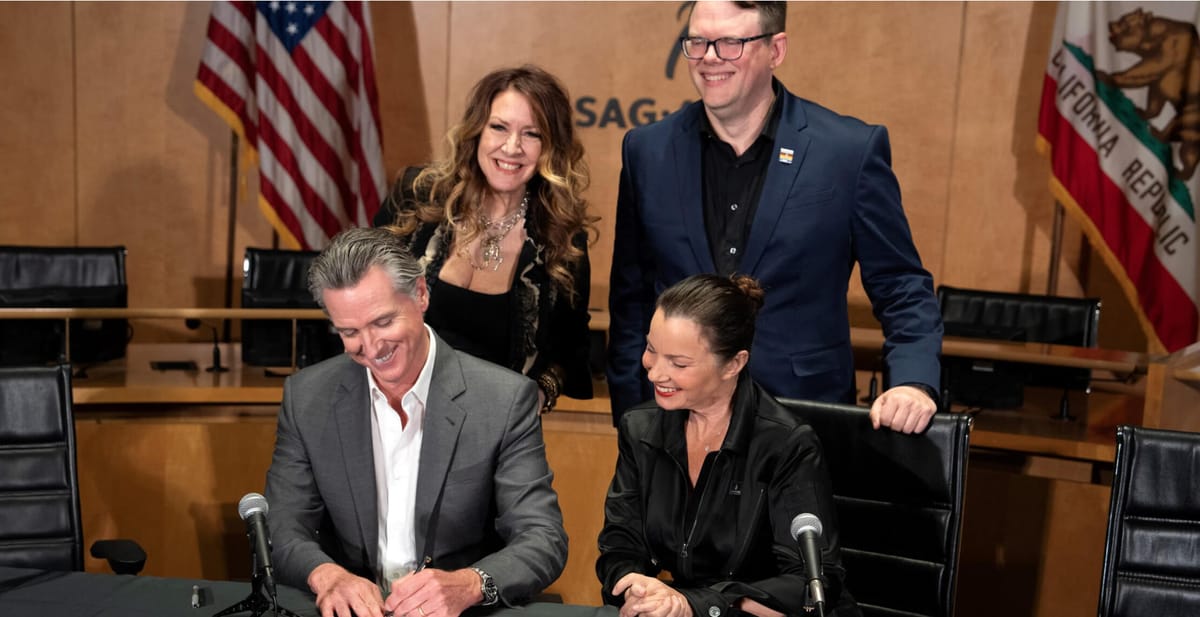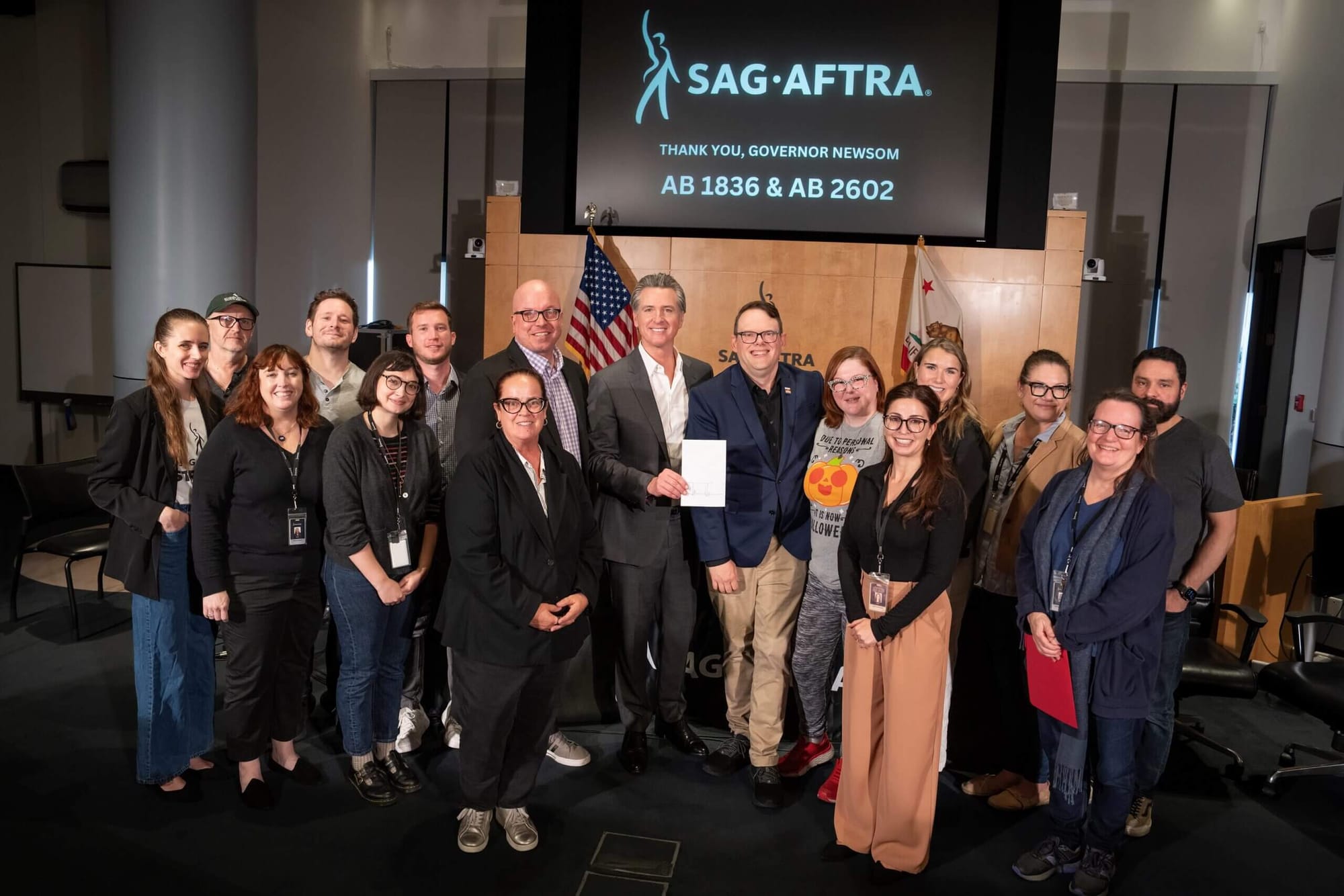
California Governor Gavin Newsom signed five bills into law on Tuesday, targeting pressing AI-related issues that have emerged in 2024. The legislation aims to combat election misinformation through deepfakes and protect actors from unauthorized AI replicas, addressing what Newsom called "demonstrable risks" in the rapidly evolving AI landscape.
The new laws tackle two main areas: election integrity and performer rights. Three bills focus on curbing the spread of deceptive AI-generated content in political campaigns, while two others strengthen protections for actors and performers against unauthorized use of their digital likenesses.
Election Integrity Measures
AB 2655, authored by Assemblymember Marc Berman, requires large online platforms to remove or label deceptive AI-generated election-related content during specified periods. The law also empowers candidates, elected officials, and law enforcement to seek injunctive relief against non-compliant platforms.
AB 2839, an urgency measure by Assemblymember Gail Pellerin, expands the timeframe prohibiting the distribution of deceptive AI-generated election material. It also broadens existing protections to include content featuring elected officials, candidates, and elections officials.
AB 2355, introduced by Assemblymember Wendy Carrillo, mandates that political advertisements using AI-generated or substantially altered content include a clear disclosure of AI involvement. The Fair Political Practices Commission is authorized to enforce these disclosure requirements.

Performer Protection Laws
AB 2602, by Assemblymember Ash Kalra, requires contracts to specify the use of AI-generated digital replicas of a performer's voice or likeness. It also mandates that performers be professionally represented during contract negotiations involving their digital replicas.
AB 1836, authored by Assemblymember Rebecca Bauer-Kahan, prohibits the commercial use of digital replicas of deceased performers without consent from their estates. This law covers various media, including films, TV shows, video games, and sound recordings.
These laws position California at the forefront of AI regulation in the United States. As home to 32 of the world's 50 leading AI companies, the state is leveraging its technological leadership to shape responsible AI development.
Governor Newsom emphasized the importance of these measures, stating, "Safeguarding the integrity of elections is essential to democracy, and it's critical that we ensure AI is not deployed to undermine the public's trust through disinformation – especially in today's fraught political climate."
The legislation reflects growing concerns about AI's potential to disrupt democratic processes and exploit individuals' likenesses without consent. With the 2024 election season approaching, the urgency of addressing AI-generated misinformation has become particularly acute.
SAG-AFTRA President Fran Drescher praised the new performer protection laws, calling it "a momentous day" and suggesting that California's actions could influence national policy.
As AI technology continues to advance rapidly, these laws represent an initial step in creating a regulatory framework. They underscore the complex balance between fostering innovation and protecting individual rights and democratic processes in the AI era.

